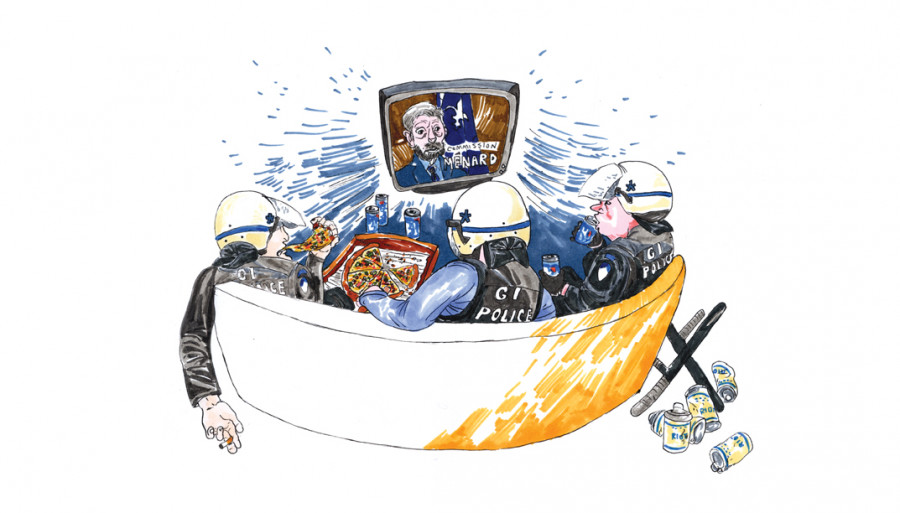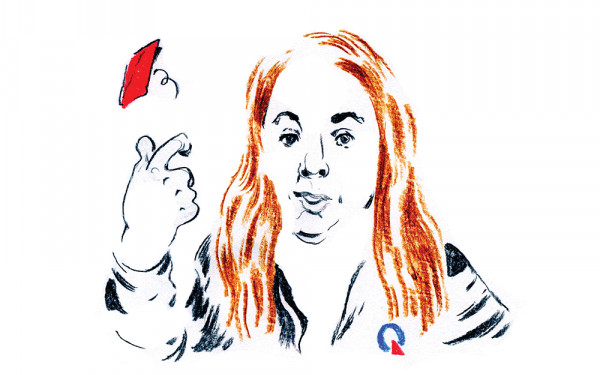Editorial: Ménard Commission Sets a Dangerous Precedent
In the latest of a string of reminders of that not-so-long-ago student movement of 2012, the Ménard Commission began on Sept. 23. The commission, which will resume later this month, aims to take a close look at the demonstrations that consumed the province between February and September of last year, focusing specifically on police action, the behaviour of protesters who agitated police, the economic fallout, the public’s perception of their own safety, and a number of other facets.
It has already failed.
Given its all-encompassing mandate, it’s understandable why the commission has been criticized from the start. Both those who marched in the streets and those who disagreed with so-called lazy and entitled students’ goals have found parts of the commission not to their liking.
Some, like the Fraternité des policiers et policières de Montréal, the city’s police union, have refused to be a part of the hearings altogether.
That’s a problem.
The absence of the police union, as well as of legal organizations like the Ligue des droits et libertés and l’Association des juristes progressistes, means that important voices are being left out, and that further damages the credibility of the commission.
The Association pour une solidarité syndicale étudiante, the more radical of Quebec’s student organizations, has stated that the commission has precisely zero credibility, that the mandate is too broad to accomplish anything and that ultimately it’s being used as a way for the Parti Québécois to squash future social movements before they even begin.
ASSÉ makes strong claims, but they are right in that the mandate is far too broad to really get anything done. Looking into police action alone could easily swallow up the three weeks that the commission is scheduled to take.
Given how many parties are refusing to participate because they fundamentally disagree with the focus of the commission, it’s hard to take the process seriously. The police union represents the city’s police force, which includes the officers who were out every night enforcing an unconstitutional law responsible for the mass arrests and ticketing of hundreds of people, as well as committing acts of brutality on those who simply wanted their voices heard.
A dangerous precedent is set by the fact that not a single member of the police union, not even its president, is required to give a testimony at the commission.
Considering the commission’s mandate is stated specifically—to examine police action and response to the protests—it seems ridiculous that, to date, the only representatives that have come before former Parti Québécois MNA Serge Ménard have been Montreal police chief Marc Parent and Sûreté du Québec chief Mario Laprise.
They’re important figures, to be sure, but neither Parent nor Laprise were on the streets nightly with a mask and a baton, so to hear them justify the actions of officers who can hide behind helmets with blacked-out ID numbers is far from acceptable.
By not requiring any of these officers to explain why they saw fit to arrest over 500 people (a figure that Parent attempted to justify during his testimony by claiming that all 508 arrests were targeted; that’s right, even the journalists), or why a protester was shot with a can of CS gas—a chemical that can cause severe damage to vital organs—from a distance of roughly two feet, a message is sent to Montreal police that they need not be accountable for their actions.
Police should not get to simply wash their hands of the student movement because they do not want to participate.
No matter what happens when the commission resumes for its final week, we remember what happened. Just as the police headed out each night to attempt to reign in the largely peaceful protests, we too headed out with cameras and notebooks and documented what happened.
The violent acts at the hands of those who are supposed to protect us from harm does not go unnoticed.




